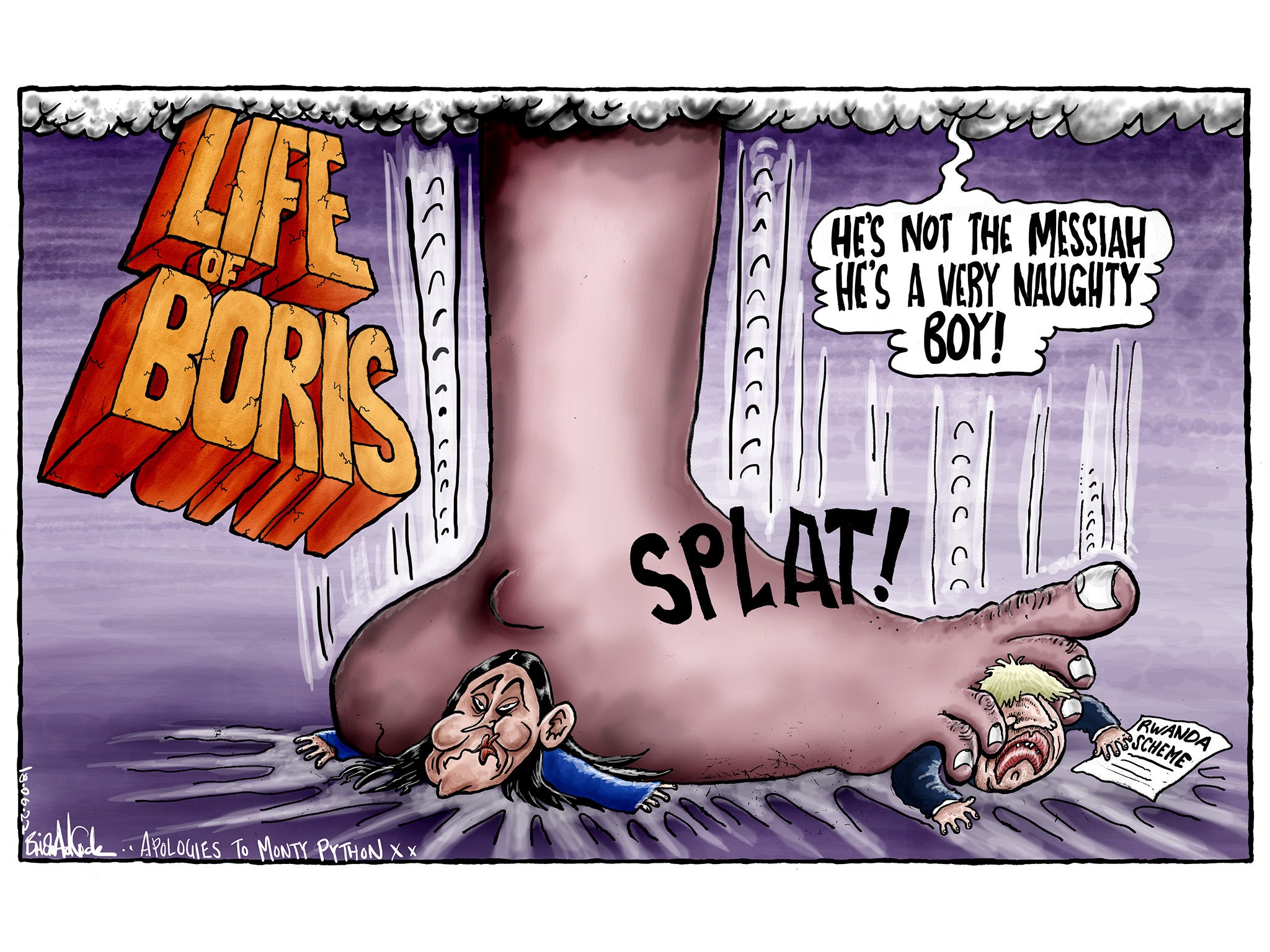Given that the government has devoted little effort to the cost or long-term practicalities of the Rwanda plan, it seems unlikely indeed that either Priti Patel or Boris Johnson has spent much time dwelling on its spiritual dimension, and how it sits with the teachings of different faith traditions.
In short, to borrow a popular term from a few years ago, they’re not especially “bovvered” about what the archbishop of Canterbury, or almighty God for that matter, might think about their migration policy. The expensive, immoral and impractical scheme is aimed precisely at getting wavering Tories out to vote in the May elections, and hanging on to the Leave-leaning electoral base subsequently. Members of the Johnson administration fear the wrath of the red-wall voter more than that of any supernatural being, in this world or the next.
Justin Welby was right, however, to speak out, and to do so in theological rather than political terms. It is self-evident that the policy raises the sorts of “ethical questions” he mentions, and he is hardly alone in being troubled by them. The same goes for his plea to remember those who face cold homes and empty stomachs because of the cost of living crisis, and the plight of the Ukrainian people.
For many years, if not millennia, the Christian churches, like other faith groups, have concerned themselves with the poor and the sick. And they have got into trouble with all manner of regimes – usually authoritarian ones – for “interfering”. In fact, the usual sin, from a historical perspective, is that religious leaders didn’t speak out loudly or early enough about atrocities such as the Holocaust. The archbishop should not fear being “cancelled” now, and certainly not for talking about theology.
Even the most performatively religious members of the government might find it difficult to comprehend, let alone refute, his challenging contention that the new immigration policy is the “opposite of the nature of God”. Yet that, along with the archbishop’s words about “subcontracting our responsibilities”, will make intuitive sense to many. His comments will strengthen the resolve of the increasing number of people who feel an instinctive revulsion at the stark cruelties involved.
The bishops in the House of Lords, for example, will be even more determined to work with others to amend or block the legislation, because of its unchristian effects, if not motivations. The Rwanda plan, being so bizarre, didn’t figure in the 2019 Conservative manifesto, so it cannot be sold as the “will of the people”, and its opponents in the Lords and Commons are constitutionally entitled to throw it out or delay it.
Home Office officials are also objecting to working on a scheme that raises profound issues of conscience, and they will feel better that the Anglican leader has implicitly supported them. Other faith leaders, many of whom will understand the plight of refugees and feel the pain of past rejections, should endorse the archbishop’s message in their own terms. It needs to be pressed home.
To keep up to speed with all the latest opinions and comment, sign up to our free weekly Voices Dispatches newsletter by clicking here
The mounting criticism of the Rwanda plan and its facilitating legislation will also make many voters – Tories with a conscience, it might be said – think again about lending the government their support when its attitude to those in genuine danger is to give them a one-way ticket to a place 4,000 miles away, safe or otherwise.
It is not necessary to be devout to feel that this modernised form of transportation is simply wrong. The asylum system may be “broken”, but it could be fixed with some effort and resources alongside a degree of pragmatic humanity. The numbers on dinghies have soared only because the lorry and ferry routes have been closed down – so the idea that there is a crisis is exaggerated. Two thirds of “migrants” are granted asylum. There is no guarantee that migrants being “processed” by a government on another continent, on a fixed per capita fee, will be housed in better conditions than they would be in the UK.
Indeed, the Rwanda deterrent effect will only work if the camps gain a reputation for being miserable, dangerous, unsanitary places – an intentional human rights scandal waiting to happen. Yet no matter how squalid they become – Mr Johnson suggests that tens of thousands will be dispatched to them – desperate people will still risk their lives to cross the English Channel, only to evade the authorities and go underground rather than claiming asylum.
Like so many migrants before them, those soon to be transported to Rwanda only wish to make a better life for themselves and their families – just as the antecedents of Mr Johnson, Ms Patel, Dominic Raab, Sajid Javid, Naheem Zahawi and other members of the elite of today wished to do. Easter is a very good moment to reflect on what fresh miseries we are about to inflict on those who now seek new lives in Britain.




Join our commenting forum
Join thought-provoking conversations, follow other Independent readers and see their replies
Comments